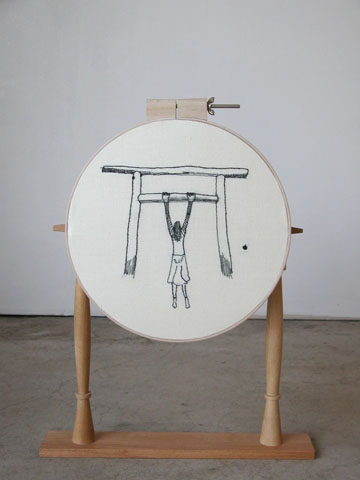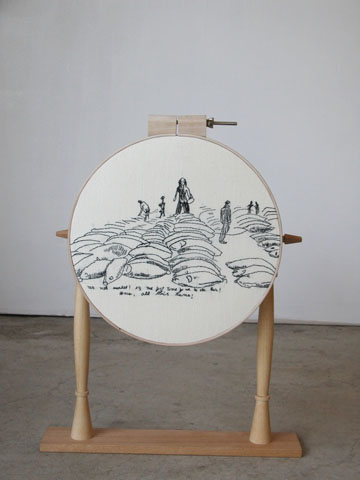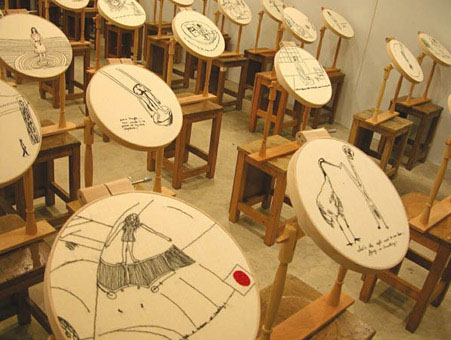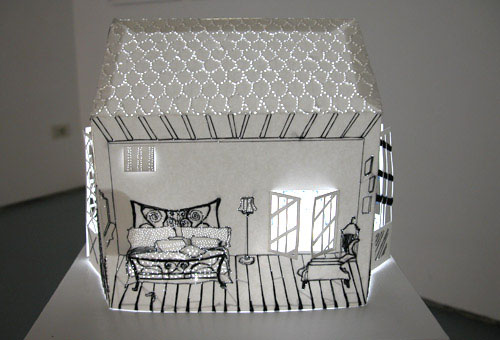







Rubiku came to the JCVA in September 2007. She spent most of her time in Tel-Aviv, where she worked on an exhibition for the Braverman Gallery, which was shown in May, 2008.
Her local project involved a group of five Ethiopian embroiderers, who worked with her on the exhibition Urban Pornitecture – 16 Ways. The choice of women from Ethiopia is unique and complex: stitching and weaving are highly developed in this community and traditionally used to reflect its aspirations towards Jerusalem – the Holy City. The colorful embroidery imagined the third temple and the holy city at its best. Now that the community is living in Israel, it has undergone a sharp clash between its imagined destination and reality. The embroiderers, bent on expressing optimism, have turned to stitching symbols such as the dove and the olive leaf.
Rubiku's designs for this project combine explicitly sexual, pornographic images of women with road maps and iconic architectural symbols of capitals around the world. She suggests that the speedy growth and industrialization of cities can be related to the embracing of sexual stereotypes that are degrading to women. The sexual content of Rubiku's designs was quite shocking to the modest and somewhat sheltered Ethiopian women. But the pleasant encounter between artist and craftswomen, and the openness Rubiku brought, allowed for dialogue and discovery on both sides. The resulting installation will consist of 16 partly open sewn boxes, each containing an embroidered woman's figure.
| Milan-Tokyo, a round trip |
Rubiku initiated this embroidery project at the Ecmigo Tsumari Art Program in Japan, in a region known for its kimono decorations. Here she invited 65 embroiderers, both men and women, to embroider screens attached to antique sewing tables which she had made especially for this purpose by local carpenters. The round sewing tables, modeled on one that belonged to Rubiku's grandmother, were set up as airplane seats when the work was exhibited. The tables, which are attached to seats, speak of rote production methods, but the embroidery produced by each is unique. |
| Getting lost in Venice, it's wonderful |
|
The humorous street signs guided tourists to the Biennale's exhibition center. With playful irony, they addressed the particular difficulties of orienting in Venice, whose labyrinthine streets are made that much harder to navigate by the confusing municipal street signs. |